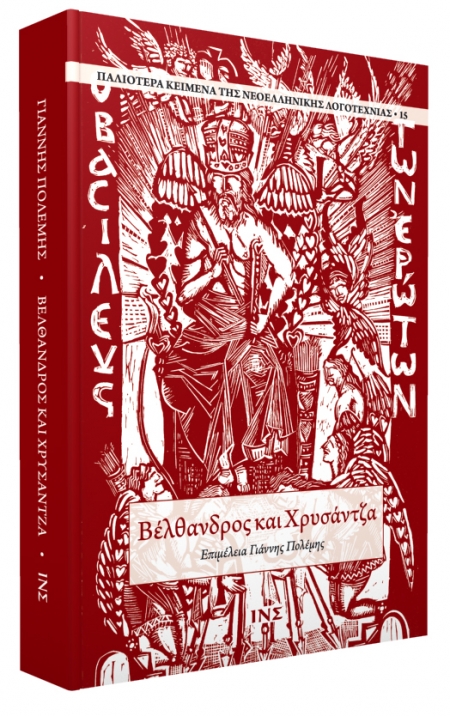Description
Velthandros and Chrysantza, an erotic romance in verse, is preserved in one miscellaneous manuscript of the XVI c. Belonging to the tradition of the late byzantine erotic narratives written in the vernacular, Velthandros and Chrysantza has been heavily influenced by Kallimachos and Chrysorrhoe, a romance of the early XIV c. which the author of Velthandros and Chrysantza seems to parody, at least in some cases. We cannot determine the date of the composition of the original text with any accuracy; however, in all probability the original text was subsequently reworked by Manolis Limenitis, a Rhodian poet of the second half of the XV c.
The author narrates the adventures and wanderings in the southern part of Asia Minor of Velthandros, the exiled and beleaguered second son of the emperor of the “Roman” state, and Chrysantza, the only daughter of the king of Antioch. Some of those adventures are rather tragic and take place in a definite place, the Seldjuk and Frankish states that have been established in Asia Minor, Cilicia and northern Syria after the battle of Mantzikert (1071), while other events seem to belong to an imaginary world, a world of dreams (e.g., the River of Fire, or the Castle of Love). The story has a happy end: the young couple ascends the royal throne. Although Death is not absent, his power is limited to some lesser figures which succumb to his authority; Eros is the undisputed winner.
This edition is more complete than the numerous editions of the same text of the past. In the introduction Yannis Polemis, professor at the Athens University, discusses the manuscript tradition of the text, its authorship, its relations with other texts, its plot, composition and structure, its motifs and sources, the possible influences of Velthandros and Chrysantza upon other vernacular texts, its language and its meter.
The edition of the text with a facing translation is followed by various notes dealing with the constitution and the interpretation of the text. In an Appendix four texts presenting a certain similarity with Velthandros and Chrysantza are to found: a new edition of a poem on the city of Theodoro in Crimea, written in a style more elevated than that of Velthandros and Chrysantza by the hieromonk Matthew near the end of the XIV c., a new edition of a prose allegorical narrative of Neilos Malliasenos, probably written at the beginning of the same c., a translation of a passage of a long poem of Jalal al-Din Rumi, the great Persian mystic of the XIII c., and some extracts from a comedy of Alexis Solomos published in 1943, at the time of the German occupation of Greece; that play took advantage, in a rather audacious manner, of the story of Velthandros and Chrysantza, which had been quite popular at least until the middle of the previous century.
Reviews
No posts found









